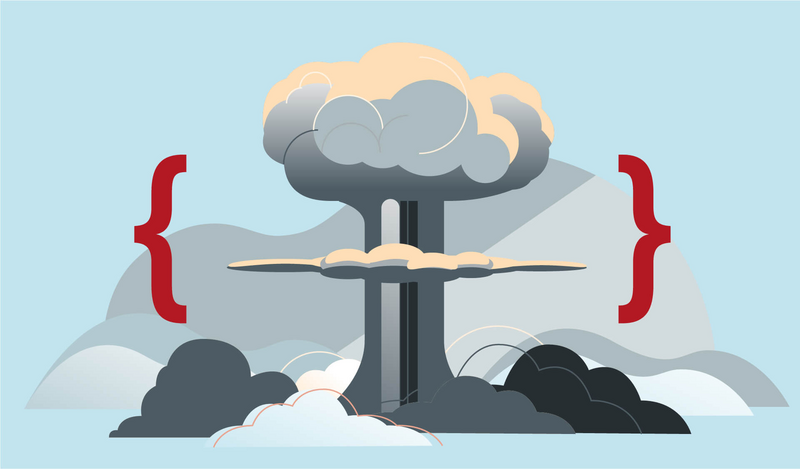
The endowment deepens the cooperation between the two institutions on building a European hub for research, teaching, and outreach on nuclear security.
The Hertie School’s Centre for International Security will expand its work on nuclear policy. Thanks to a generous endowment by the US-based Stanton Foundation, a leading funder of research on nuclear security, the centre will strengthen its research, teaching and policy outreach in this policy field. Topics covered include European nuclear strategy and doctrine in an age of great-power competition and nuclear arms control.
As one of the few European research institutions covering this field, the grant will allow the Centre for International Security to build a European hub for research on nuclear security challenges and contribute to a stronger European voice in the global debate on nuclear security. The project is a joint endeavour with the Munich Security Conference (MSC), the world’s leading forum on international security and a long-standing partner of the Centre for International Security. The project will be directed by a steering committee, consisting of principal investigators Dr Tobias Bunde (Hertie School/MSC), Prof. Marina Henke (Hertie School), and Prof. Julian Wucherpfennig (Hertie School). Prof. Graham Allison (Harvard University) and Prof. Wolfgang Ischinger (MSC/Hertie School) will support the project as members of its advisory board.
Signal of trust in an upcoming research institution
"Europe and the global community are currently experiencing security threats we haven’t seen since the end of the Cold War. The Stanton Foundation’s endowment will allow the Hertie School to further analyse these threats by opening extended opportunities for research, teaching and policy advice on nuclear security in Germany and beyond. We are grateful for the Foundation’s renewed signal of trust in our university," says Prof. Cornelia Woll, President of the Hertie School.
The Stanton Foundation has supported the centre since 2018, when researchers at the centre applied for an introductory grant. After the successful completion of a second project phase in 2023, the Stanton Foundation has decided to further strengthen its support to the centre. The endowment demonstrates the foundation’s commitment to nuclear policy research at the centre and will allow the centre to sharpen its focus on nuclear security research in the years to come.
“Over the past five years, the Stanton Foundation has worked effectively with the Centre for International Security at the Hertie School to support its nuclear security initiative. The Foundation has been impressed by its work and its contributions to the Munich Security Conference. The Foundation is pleased to be able to invest in its long-term development as a major hub for nuclear security research in Europe,“ said Graham Allison, Advisor to the Stanton Foundation Nuclear Security Program.
Raising the nuclear IQ in Germany and Europe
The endowment will benefit three pillars at the centre: research, teaching, and outreach. Project leaders will not only conduct research and teach courses on nuclear security but also intensify their outreach efforts in cooperation with the Munich Security Conference.
The intensified outreach comes at a crucial point in time, as the need for academically rigorous nuclear security research, outreach and teaching has increased even further since the beginning of Russia’s full-scale invasion of Ukraine on February 24, 2022.
“Russia’s war on Ukraine has displayed once more the potency of nuclear weapons as a coercive tool. In Germany we have lost much of our scientific knowledge on how to understand and react to such nuclear weapon use. We are grateful to the Stanton Foundation for enabling us to start rebuilding this knowledge and training the next generation of nuclear security scholars and strategists,” says Prof. Marina Henke, Director of the Centre for International Security.
Henke took over the leadership at the centre in 2020. She succeeded Professor Emeritus Wolfgang Ischinger, former chairman of the Munich Security Conference and Founding Director of the Centre for International Security. Ischinger comments: "I am proud and happy: the Stanton endowment will not only enrich and strengthen academic work on nuclear strategy and security issues, it will also open a whole new chapter at the Hertie School’s Centre for International Security itself. And the Munich Security Conference will provide an ideal platform to include political and military decision-makers as well as the broader public in the necessary discussions about the complex issues involved.”
About the Hertie School’s Centre for International Security
The Centre for International Security in Berlin provides a home for the study and debate of the complex 21st-century security challenges facing Germany, Europe, and the world. By positioning itself within the triangle of research, teaching, and outreach, the centre constitutes a European hub for scientifically rigorous research and policy analysis.
It is based at the Hertie School, a private university which has been teaching, researching and debating good governance and public affairs for 20 years. The social science university offers master's degrees, doctoral programmes, and executive education to train change-makers in government, business, and civil society. The Hertie School was founded in 2004 by the non-profit Hertie Foundation and has been generously supported by it ever since. It is a member of the European university alliance CIVICA, publicly recognised, and accredited by the Accreditation Council as well as the German Council of Science and Humanities.
About the Stanton Foundation
The Stanton Foundation is a US-based private foundation established by Frank Stanton, a long-time president of Columbia Broadcasting System (CBS) and an adviser on nuclear issues to President Eisenhower in the 1950s. One of its key areas of focus is supporting policy research in international security with a special emphasis on nuclear security.
Contacts
-
Stefanie Jost, Centre Manager, Centre for International Security
-
Alina Zurmühlen, Editorial Lead & Press Officer
